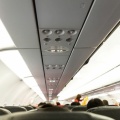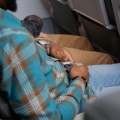A guide to new holiday rules for tourists in the 7 most popular countries
 The coronavirus safety measures and requirements that have been introduced in the major tourist destinations are likely to persist throughout the coming summer season. This was reported by experts of the tourist market, who summarized the new rules of behavior abroad in a convenient guide.
The coronavirus safety measures and requirements that have been introduced in the major tourist destinations are likely to persist throughout the coming summer season. This was reported by experts of the tourist market, who summarized the new rules of behavior abroad in a convenient guide. This set of requirements will be relevant for travelers from Russia, provided the borders are opened for departure and return.
1. Spain - compliance with the mandatory mask regime in public places and in the open space, when it is not possible to observe the social distance. There are outdoor areas on the beach, between which there is also a distance of 1.5-2 m. In hotels staff will be obliged to wear personal protective equipment. Mini bars will be cancelled. A two-week quarantine also remains in place for those entering the country.
2. France - even for domestic tourists, trips are still limited to 100 km from their residence. There is a mask regime in transport. Catering establishments are closed. Up to 10 organized groups are allowed to be assembled.
3. Portugal - masked mode on public transport. Buses and trains can only be filled by 2/3. Catering establishments are open, but work with limited capacity. Beaches and hotels will be open in June. But placements are only allowed to work after receiving a security badge.
4. Greece - new rules have been introduced for hotels, beaches and swimming pools, and a different food and travel regime. The country is still in force masked regime. Only 2 people can travel in taxis. There are 500 km of beaches. But for 1 km it is permissible to stay no more than 40 people, who must observe the distance of 4 m. People are monitored by drones and cleaners. The buffet has been cancelled in the hotels. Breakfast, lunch and dinner take place in several sequences. A doctor testing tourists for suspected virus should be present at all resorts. If the infection is detected, the holidaymaker will be quarantined.
5. Italy - a mask regime for enclosed premises, and in the lombardy region - for a stay on the street. The beaches will be open. But the distance between holidaymakers on sunbeds and under umbrellas should be at least 1.5 m. From June 3, the country will remove mandatory quarantine for those entering from other EU countries.
6. Cyprus - Visiting tourists plan to test for coronavirus. There is also a disinfection of luggage for guests who have arrived at the hotel. Beaches and accommodations will open in June.
7. Bulgaria - hotels must maintain a social distance of 1.5 meters. If this requirement is met, it is possible to keep the buffets. Outdoor pools (without SPA) will work for tourists.
Russian tour operators have resumed selling and booking tours to Turkey and Europe for the next autumn-winter season, as well as for the summer of 2021.
Last news
 14.02.2023
Vyborg - a unique monument of the knightly Middle Ages
14.02.2023
Vyborg - a unique monument of the knightly Middle Ages
Vyborg is a city with an ancient history, located at the Russian-Finnish border, a hundred kilometers from St. Petersburg. For seven centuries now, its cobbled streets have preserved the spirit of the ancient European era of knightly tournaments. This unique corner of Russia can be called a living monument of the history of human civilization.
 10.02.2023
How to behave during turbulence to save your nerves and avoid injury. Part 2
10.02.2023
How to behave during turbulence to save your nerves and avoid injury. Part 2
In the last article, the main types of turbulence, the reasons for its occurrence, as well as answers to questions why you should not be afraid of it, were considered. This article will give recommendations on how to behave during a possible "shaking". As well as the actions of passengers that will prevent possible injuries and other negative consequences of turbulence, which can be taken even before the announcement of the danger by the stewardess.
 07.02.2023
How to behave during turbulence to save your nerves and avoid injury
07.02.2023
How to behave during turbulence to save your nerves and avoid injury
More than 30 people flying on a Hawaiian Airlines plane were recently injured due to being caught in a zone of severe turbulence. Such events are extremely rare. However, airline crews take this possibility very seriously. Therefore, passengers should also know what this phenomenon is and how to behave when they find themselves in turbulence.